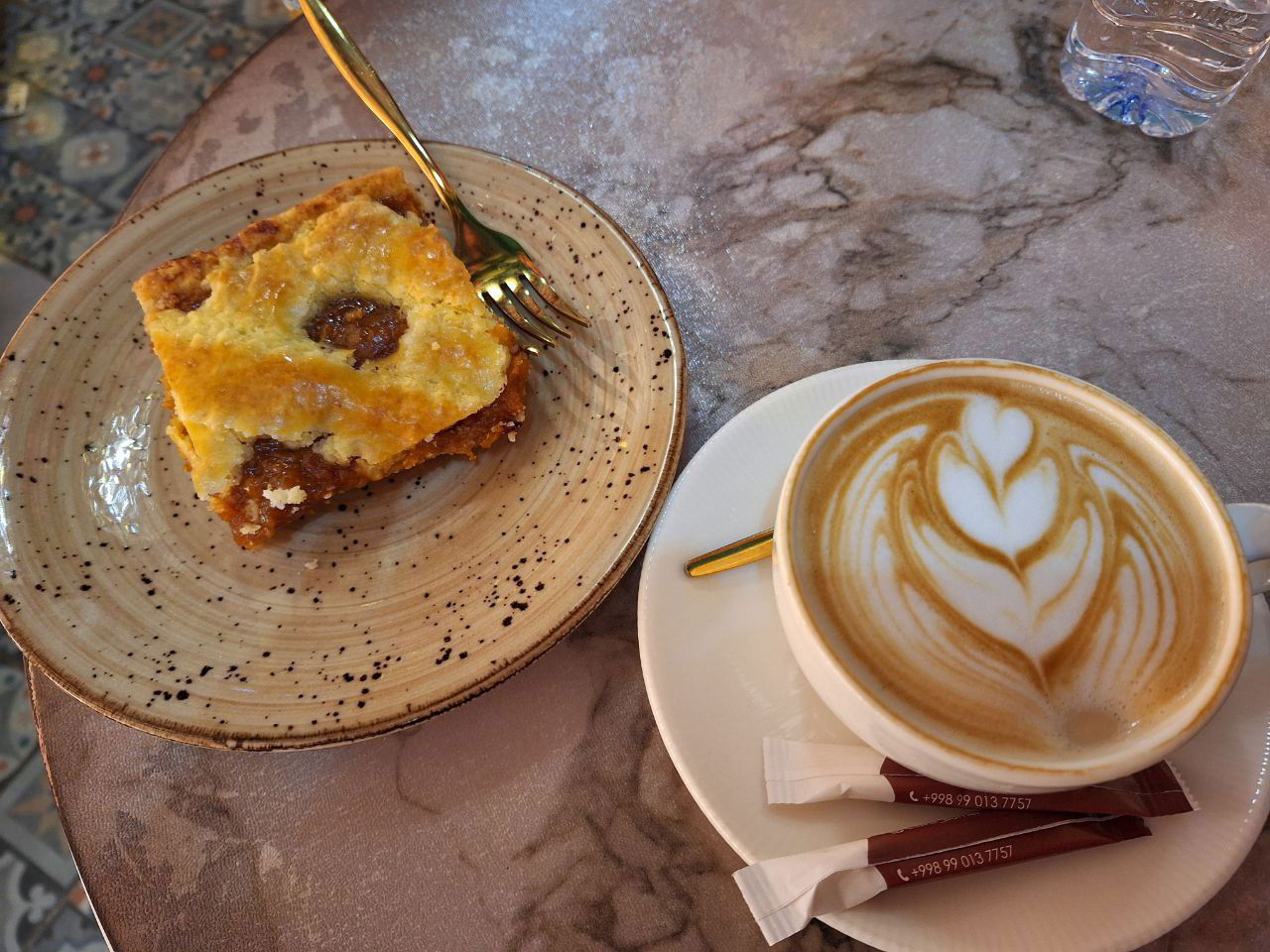Entertaining Language Foibles
Three of us were walking down the street lined by blossoming trees. I inhaled deeply, relishing the heady acacia scent. Dave was on his way to the supermarket, and Kat and I were heading to a café that has recently become one of my favourites.
Even though it was only April, it was a warm day. Dave, wearing a short sleeve shirt more appropriate for Cuba than Nukus, was in a good mood. As we passed a group of young cyborgs, with the white earpieces protruding from their ears, each in their own world, he said to no one in particular, “So what do you think about this ChatGPT?”
I chuckled, “It’s amazing and scary at the same time.” That’s how I feel about a lot of things these days reading articles discussing the explosive combo of biology and IT.
“Yeah. I think teachers are going to have hard time with that. Think about all the plagiarism,” Kat offered, showing her ‘practical teacher’ side.
She made a valid point. Plagiarism using the Internet is hard enough for teachers to deal with already, and now they will be combating something much smarter than just Google and themselves. I always felt that smartphones are only as smart as their owners, making my own phone dumb indeed as I use only a fraction of its features. I chose to think of something else.
“Are you going to have lunch there?” I turned to Kat.
“No. I am not that hungry. I think I’ll just have a cup of coffee. What about you?” “Coffee, and I am ready for my high-end hooker,” I said, and burst out laughing.
Dave only shook his head. “You still find it funny …”
“Yes. I can’t help it. It just really tickles my fancy.”
Kat threw me a bewildered look. “What is all that about?” So I had to explain. “This café serves a very nice pastry called Kuroga. Now, when I say the word, it comes easily. But I had hellish time remembering it. Kuroga,” I pronounced it with relish, “is a delicious tart with a nice layer of apricot jam on the top,” I smiled, just remembering the taste. “It could even be considered healthy. Think about it. I am getting fruits – vitamins!” I finished my description. Dave laughed, “Whatever gets you through the day.”

“Ok, Kat,” I decided to ignore him. “So, every time I ordered it, I had to point to it because I just could not remember the name. I am sure that, after several visits, the server already recognized me and probably began to think that I am a bit on a slow side, always pointing, never remembering the word. Also, every time I wanted to order, I had to get up and go to the counter and do my pointing, and the girl at the counter would tell me the name of it and I would go back to my table and repeat to the waiter what I wanted. Tedious! I have no idea why the pictures on the menu display all their creamy cakes, but it does not include their Kuroga pastry. Then they changed the layout of the café, and accessing the counter became physically too awkward because now I have to go outside and use the other door to get me to the area for take-out, where they display their pastries. So, after they made the change, I had had enough of this situation. I decided to use mnemonics to memorize this one frustrating word.” I made sure I had Kat’s attention. “So, I began with ‘Kur.’ I fixed this in my memory as the beginning of a Czech word referring unkindly to a ‘loose’ woman. And ‘oga’, I reasoned, can be remembered as the end of a Russian word doroga, which means expensive. So, you see, a high-end hooker finally did the trick,” I laughed and continued, “That is what happens when you have several languages at your disposal. I can only imagine what messes our students can get into with four or more languages to draw on!”
The story I told Kat made me think of other instances in which language played a prominent and entertaining role. Many times, when I call a taxi, I start telling the driver in Russian that I want a taxi, feeling rather silly about that part. After all, if I wanted a pizza, I probably would not call a taxi company. Following that, I specify my location. That is inevitably answered by a rapid stream of Uzbek of which I understand absolutely nothing. Regardless, I respond by saying fluently, “Thank you. I will be waiting.”
So what did I just agree to? Sometimes I wonder. Maybe the caller offered a good price for my first-born and I had agreed, or there’s a kilo of heroin I had just purchased waiting for me somewhere. But, somehow, I always end up with just an ordinary taxi.
Normally I don’t like buying food from street vendors because they handle their wares with bare hands. But recently, as I walked along the street, I happened to see one of the vendors pull a fresh batch of deep-fried pastries from a large vat. As they were dripping with hot oil, she had to handle them with tongs. I felt a bit hungry, and they smelled delicious but, before succumbing, I wanted to know what the filling was.

Prompted by my question, “Please, what is inside?,” the woman shrugged. I wondered if she understood my question, since some of the younger people no longer speak any Russian. After I repeated my question slowly she said, “pechen.” “Hmm, pechen”, I repeated thoughtfully not having a clue what it could be. I probed some more. “Is it potato?” I tried, since that is the second most common filling beside meat. She shook her head left and right. At least, now we were communicating. “Is it meat?” Again, her head turned like she was following a tennis match. “Maybe squash?” I was slowly exhausting my fillers vocabulary, but this guessing game was fun. I had a flash of brilliance. “Maybe there’s nothing inside?” No, that did not work either. She repeated “pechen.” Oh well, pechen it is. “One pechen please.” She dropped it still hot into a plastic bag and handed it to me with a smile. The first bite was delicious. All that crunchy gold surface pastry soaked with many times burned-over oil – the stuff heart surgeons’ dreams are made of. I ate most of it, ‘til I finally reached the filling. It was brown and not particularly tasty. After one bite I stopped and saved the rest for a stray dog, which I was bound to see sooner or later. In the comfort of my room, I looked up the word. Now I know that ‘pechen’ means liver.
There are many ways to enrich one’s vocabulary. The beauty of these impromptu, and often funny, language acquisitions is that they tend to stay with you the longest. I know that I will remember ‘pechen’ as long as I live, just as I would bet my money that Helena, our family friend, still remembers the two words she learned from her court experience. It happened many years back when Helena was a relatively new arrival in Canada. She was a Czech lady who landed in Toronto, which was to become her new home, with some small knowledge of English of which she was very proud. After several months of improving her language skills even further, she was very pleased with the way she had been navigating her new life in Canada so independently. After being involved in a minor car accident and consequently summoned to attend a court hearing, she felt she was quite capable of explaining herself in court without any need of a translator. All went well until she was asked to present her side of the story.
She began her narration by specifying her location at the time of the accident, with the now famous words, “During accident, I am in middle of intercourse …” You have to hand it to the judge. He didn’t even flinch. Instead, he just said, “The lady obviously had other things on her mind. Case dismissed.” Let’s face it, if you are nervous and new to English, anyone could find herself in the middle of intercourse as opposed to an intersection.
One downside of the improved accuracy of Google Translate and the entry of AI into the game is that we are bound to lose a precious source of entertainment currently derived from language mishaps.
Recently we had our lunch at a Turkish restaurant. I felt like indulging myself, so I went to the dessert counter where, normally, rows of sumptuous baklava would be tempting unsuspecting customers who had come with just a salad in mind. What a disappointment. There was not even a crumb stuck to some honey there. It was that bare. I asked the waitress what happened to their ‘missing in action’ baklava, and she answered in Uzbek. She was not our regular server, who knows some Russian and with whom I manage to communicate without using Google Translate. This girl had to rely on technology.
She went away and came back with a Google translation on her phone. I read it and burst out laughing. It read: ‘The sweet smelling child is getting married.’ She looked at me puzzled but, after Dave used his Uzbek Google Translate, she laughed too. Apparently, the son of their pastry chef was getting married and thus baklava production was halted for the moment.
I have already started mourning all the funny translations that, in the upcoming AI improved (?) new world, we may never experience. Communicating in a foreign country will no doubt become easier but, I suspect, we won’t get to laugh as much.